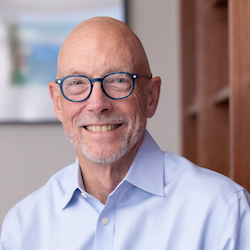Seize the Moment: Higher Ed Must Improve, Innovate, and Inspire
In a call to action drawn from his remarks at ACE’s recent annual meeting, Ted Mitchell argues that higher education must respond to political attacks not with retreat, but with improvement, innovation, and inspiration.
Latest Features

Why Strategic Plans Fail—and What Leaders Can Do Instead
Another beautifully formatted strategic plan will not change an institution. Jim Doti reflects on how a focused vision and disciplined use of data reshaped Chapman University over 25 years, and what leaders can take from that experience now.

How Veterans Can Lead the Future of Work and Learning
In this call to action, Wendy Lang and Michele Spires urge colleges, credential providers, and employers to align around one shared goal: ensuring veterans can move from service to civilian success without unnecessary barriers.


